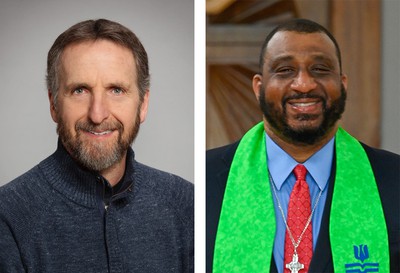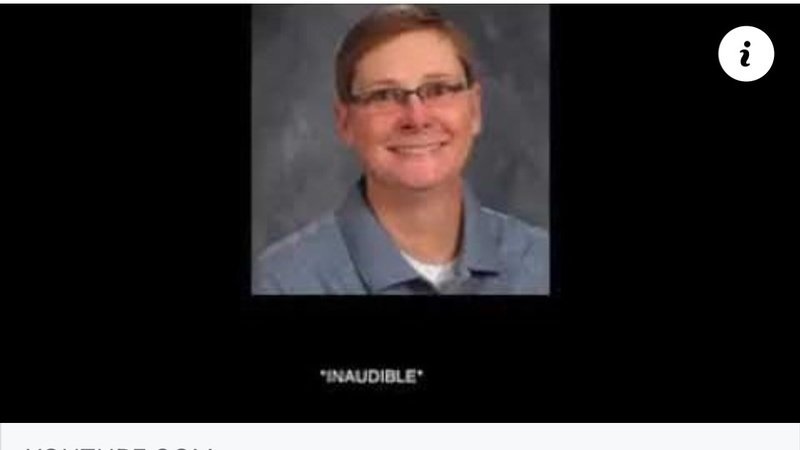| |||||||||||||||
| |||||||||||||||
My name is Kristina Mulligan. I am a blogger, a disability advocate, and, above all, I am a mother. My son, Flynn, is a shining light with the biggest heart. He loves Spider-Man, Halloween (year-round), and being outside. He also has cerebral palsy. Since Flynn’s diagnosis, I have thrown myself into the world of raising awareness for this disability that even, just a couple of years ago, I knew very little about. As a parent, it’s extremely important to me for the world to be well-informed, accessible, and inclusive. That’s the only way that the estimated 764,000 individuals living with cerebral palsy in the United States can succeed. In 2020, I started locally by, among other “small” things, organizing the Mid-Hudson Bridge to be lit up in green, the official color of CP Awareness, on March 25th for National Cerebral Palsy Awareness Day. In my research, I discovered Nicole Luongo, an amazing woman with cerebral palsy, who, in 2019, was single-handedly able to light up at least one landmark in almost all of the states (48) in March and in three countries for World CP Day in October. This year, as a team, we are following big dreams: trying to get the White House to shine green for cerebral palsy awareness and get an official proclamation for March 25th to be National CP Awareness Day! Together, we think that 2021 could be the most impactful year for awareness, but we need your help to bring attention to the conversation. Nicole has started a movement on Twitter to get cerebral palsy the attention it deserves - which has almost 50,000 views to date! We want National Cerebral Palsy Awareness Day to be announced on local news around the country and on national news outlets. Cerebral palsy is the most common disability in childhood, yet no one talks about it. There is very little representation, a lack of attention, and even less understanding. To have such attention on the “why” would have such a tremendous impact on this community and, therefore, the entire world. People with cerebral palsy are not invisible and it’s time to stop treating them as such. Let’s get EVERYONE to go green for CP. It’s time! | |||||||||||||||
| |||||||||||||||
|
In this blog, we'll look at how men and women at serving Jesus Christ both at home and abroad. We'll focus on how God is using their work to transform the lives of people all over the world.
Wednesday, March 31, 2021
Change.org - Cerebral palsy
We need to consider vast wealth accumulation as a mental illness
Woe to those who join house to house, who add field to field, until there is no more room, and you are made to dwell alone in the midst of the land.— Isaiah 5:8 (ESV)
He who loves money will not be satisfied with money, nor he who loves wealth, with his income; this also is vanity. — Ecclesiastes 5:10 (ESV)
As our society, and indeed our world, struggles with a wide array of problems and challenges, from the climate crisis to the COVID-19 pandemic, from migration to war and political dysfunction, one daunting reality haunts our political and economic debates: the rise of the Super Wealthy. The gap between those with the most and those with the least is greater now than at any other time in modern history, and the pandemic has only made the problem worse. In America, fewer than 600 people control wealth equivalent to that held by those on the bottom half of the economic scale. While this problem has always existed in human society, we propose that such hoarding of riches be re-examined in modern terms and be redefined as a mental illness.
Religious traditions and teachings have always viewed an obsession with wealth as a problem and an obstacle to a just society and positive relationship with the Divine. Jesus specifically says that you cannot worship both God and money (Luke 16:13), and the prophets chastise those who would hoard land over a just distribution of resources. Drawing upon the Matthew 25 passage that describes the necessity of caring for those who are marginalized in society, the Matthew 25 invitation seeks to eradicate poverty and dismantle structural racism, yet this vision continues to run up against the inequitable distribution of resources that would help solve these problems. In the face of thousands of years of teachings that implore humans to not worship money, we must ask ourselves: Why?
Every era defines and understands “sin,” our disordered relationship with ourselves, each other and God, in different ways. Theologians have used the idioms and concepts of their time to recognize that there are obstacles within human beings that prevent the manifestation of the Beloved Community. In our age, the concept of mental illness has found powerful resonance in a quest to describe the suffering and challenges we face in our quest for life-giving social relationships.
Unfortunately, the categories for mental illness have usually been used, and focused upon, those who struggle to “succeed” in society. With few exceptions, those who “prosper” rarely are labeled as mentally ill. Yet if their success causes immeasurable harm to society and others, perhaps we need to reconsider this bias. What if rather than being seen as “captains of industry,” people who accumulated billions of dollars were understood to be seriously ill individuals?
The Diagnostic and Statistical Manual of Mental Disorders defines hoarding disorder as follows: “Hoarding disorder is characterized by persistent difficulty discarding or parting with possessions, regardless of their actual value, as a result of a strong perceived need to save the items and the distress associated with discarding them. Hoarding disorder differs from normal collecting. For example, symptoms of hoarding disorder result in the accumulation of a large number of possessions that congest and clutter active living areas to the extent that their intended use is substantially compromised. The excessive acquisition form of hoarding disorder, which characterizes most but not all individuals with hoarding disorder, consists of excessive collecting, buying or stealing of items that are not needed or for which there is no available space.”
As mentioned above, we usually understand someone with this disorder as “nonfunctional” and define hoarding in terms of personal clutter. But, as Isaiah recognized millennia ago, accumulation that prevents others from functioning is a social disease affecting the entire body of society. When one has so much that others cannot eat, as is the case with, for example, the Walton family (the owners of Walmart) who have billions of dollars while their workers go to food banks because they do not receive a living wage, then your possessions have congested the social space such that life becomes impossible. The massive over-accumulation by a few is causing planetary clutter while millions do not have basic needs met.
Recognizing such over-accumulation as an illness would realign our social thinking regarding such behavior and would encourage policy to address and limit the damage caused by these very disturbed individuals. It would also help give us a way forward as we seek to solve the problems caused by this behavior.
The treatment for hoarding recognizes that letting go of things is possible and brings life. The restoration of right relationship with “things” allows all to flourish. For people to make a living wage, even if it means a few billion less for some, would bring so much life to society as a whole. The “rich young ruler” (Mark 10:17–27) who encounters Jesus is an example of what is required: “performative religion,” the perception of “being good” isn’t enough, there is still one thing more. His sadness at hearing that he needs to let go of his money is recognition of the need for healing: There is something in his mind that is blocking his transformation. This is the illness of wealth hoarding. In our modern era, such people actively resist policies such as a wealth tax, or reparations for slavery, because the attachment of their illness generates a visceral reaction against letting go of some of their money.
Yet those of us who are committed to the Matthew 25 vision of a just kin-dom know that when the “mighty are brought low” (Mary’s vision in Luke 1) they actually become more healthy and human, and as the “lowly are lifted up” they are given space to flourish. This is the kingdom process that Jesus calls us to embrace.
AUTHOR: Rev. Gregory Bentley & Rev. Daniel Wolpert
Tell Congress to Support the Black Maternal Momnibus Act!
| ||||
|
WCC NEWS: Walk and reflect on the Easter journey for justice in Palestine and Israel
| ||||||||||||||||||||||||||
|
Breaking News: 6th Episcopal District Announces Boycott of Coca-Cola Products
| ||||||||||||||||||||||||
| ||||||||||||||||||||||||
|
Urge the Senate to Immediately Restart Diplomacy with Iran
 |
The Trump administration’s withdrawal from the Iran nuclear deal (the Joint Comprehensive Plan of Action) left the world increasingly unstable, shortened the “breakout time” to Iran having nuclear weapon capability, and put economic and humanitarian hardships on Iranian citizens. The U.S. first broke the deal. We must act first and return to the JCPOA to restore diplomacy with Iran. Ask your senators to pass the Iran Diplomacy Act to lift sanctions on Iran and rejoin the JCPOA.
As Christians, we are called to be peacemakers and steward a world where nations “beat their swords into plowshares, and their spears into pruning hooks” (Matthew 5:9; Isaiah 2:4). Promoting peace is the Christian response to the call to love our neighbor and respect the image of God in all people. U.S. policies have destroyed the livelihood of Iranians who are already suffering from the pandemic. Our actions have placed undue suffering upon women and children, and prevented Iran from fulfilling its commitment to the Paris climate agreement. The U.S has a moral obligation to take the first step by returning to the JCPOA.
Urge your senators to co-sponsor the Iran Diplomacy Act, repeal the previous administration’s “maximum pressure” strategy, and pursue a path to peace where we care for our neighbor, reconcile broken relationships, and prevent the horrors of war. Ask the Senate to take urgent action by lifting sanctions and returning to the Iran nuclear deal. In peace, Jonathan Maresca
|
Tuesday, March 30, 2021
Change.org - Teacher being attacked online?
| |||||||||||||||
| |||||||||||||||
Ms. Okusko is an English Teacher at Sparta High School in Wisconsin. She was in an online class discussing politics with her students when she was unknowingly recorded, regardless of that the information with was sharing with her students wasn’t inaccurate and it was an opinion-based discussion. The audio recording was placed in the hands of a Republican Tea Party in La Crosse Wisconsin and are attempting a smear campaign against her. As far as I know she hasn’t been fired from her job but she has gotten in trouble due to this smear campaign against her. Please sign this petition to support her during this unnecessary situation. As someone who was a former student of her’s she always made me feel welcome as she did all her students regardless of how they felt about being taught by a Religious LGBTQ+ teacher. She doesn’t deserve this and I think she would appreciate a community backing during this time. | |||||||||||||||
| |||||||||||||||
|
MLP February Newsletter!
IN THIS ISSUE * Notes from the Staff * Welcome to our newest MLP Ministry! * Upcoming Events From our Director of Engagement The last fe...

-
Genocide, Worker Rights, and White Christian Nationalism NCC Newsletter July 2, 2021 Click here to donate Recent Interview with Jim Winkl...
-
View this email in your browser Welcome to the Truth and Action Roundup, a reliable weekly source of information, inspiration, and action f...
-
View this email in your browser Welcome to the Truth and Action Roundup, your reliable weekly source for information, inspiration, and oppo...








